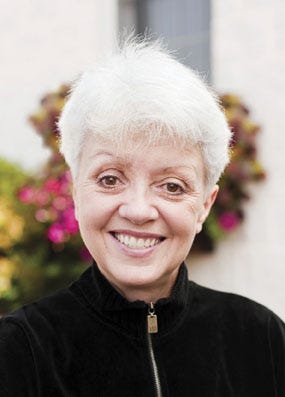
Vision Clinical Update 2021: Addressing Health Inequities and Implementing New Protocols
How are the MA vision screening protocols changing? What are the best practices for a high-quality vision screening program?
Massachusetts is implementing new Vision Screening Protocols (effective FY23). This Vision Clinical Update will provide school nurses with essential tools and knowledge to implement these protocols and perform high-quality vision screenings. With an overall emphasis on health equity, presenters will share screening methods based on the latest evidence and will discuss strategies for effective case management of referrals and follow-up care. Participants will receive updates on the new screening protocols and an overview of the commission work report that outlines the recommendations for future screenings.
Target Audience
Massachusetts School Nurses, anyone interested in learning about the updates of vision screenings
Learning Objectives
After completing the training, you will be able to:
- Describe the connection between vision and the ability to learn.
- Describe at least one detrimental impact of incomplete referrals.
- Implement best practices for performing vision screening of all student populations.
- Apply best practices for referral and follow-up of all student populations
- Plan strategies to address identified barriers to completion of the referral process.
- Initiate assessment of current school/district procedures to implement new vision protocols.
This course is broken into several sessions.
- Sessions 1-3 each include several brief (<10 minutes) recordings that learners can view on their own time.
- Session 4 will be presented live via Zoom.
- Session 5 is an optional session to be managed at the district level.
School nurses/districts may use this time to assess their local vision screening program and determine how to implement the new vision screening protocols. Supplemental quality improvement tools are provided for this assessment.
Collectively, the recorded sessions, live zoom, and district level sessions are designed to allow for a full professional development day.
| Session | Time to Complete |
|---|---|
| Session 1 | ~ 51 minutes |
| Session 2 | ~ 33 minutes |
| Session 3 | ~53 minutes |
| Session 4- Live Session | 1.5 - 2 hours |
| Session 5 (Optional) | Determined at the district level |
Boston University School of Medicine asks all individuals involved in the development and presentation of Accredited Continuing Education activities to disclose all financial relationships with ineligible companies. This information is disclosed to all activity participants prior to the start of the educational activity. Boston University School of Medicine has procedures to mitigate all relevant financial relationships with ineligible companies. In addition, faculty members are asked to disclose when any unapproved use of pharmaceuticals and devices is being discussed.
In accordance with the Standards for Integrity and Independence in Accredited Continuing Education, all relevant financial relationships with ineligible companies that faculty, planners, authors, and anyone who may be in control of content have been mitigated.
No faculty has any financial relationships to disclose.
Faculty
 Paulette Tattersall, DipPharm, MSc Paulette Tattersall, DipPharm, MSc | Director, Prevent Blindness, Northeast Region |
 Shanyn Toulouse, MEd, BSN, RN, NCSN Shanyn Toulouse, MEd, BSN, RN, NCSN | Northeast Regional School Nurse Consultant |
 P. Kay Nottingham Chaplin, EdD P. Kay Nottingham Chaplin, EdD | Outreach and Education Coordinator for Prevent Blindness |
 Emily Taylor, MS Emily Taylor, MS | Massachusetts Department of Elementary and Secondary Education |
 Bruce Moore, OD Bruce Moore, OD | New England College of Optometry |
Program Manager: Lesly Zapata
Boston University School of Medicine Continuing Nursing Education is accredited with distinction as a provider of nursing continuing professional development by the American Nurses Credentialing Center's Commission on Accreditation.
Boston University School of Medicine designates this enduring material 4.50 contact hours, none of which are eligible for pharmacology credit.
SHIELD is a DESE-approved provider for PDPs. PDP certificates are issued for programs/series lasting 10 or more hours on a topic. CNE certificates are also issued for eligible courses. Learners may use CNE certificates toward PDPs.
Available Credit
- 4.50 ANCC
- 4.50 Participation
Price
Disclosure
THIS CONTINUING MEDICAL EDUCATION PROGRAM IS INTENDED SOLELY FOR EDUCATIONAL PURPOSES FOR QUALIFIED HEALTH CARE PROFESSIONALS. IN NO EVENT SHALL BOSTON UNIVERSITY BE LIABLE FOR ANY DECISION MADE OR ACTION TAKEN IN RELIANCE ON THE INFORMATION CONTAINED IN THE PROGRAM. IN NO EVENT SHOULD THE INFORMATION CONTAINED IN THE PROGRAM BE USED AS A SUBSTITUTE FOR PROFESSIONAL CARE. NO PHYSICIAN-PATIENT RELATIONSHIP IS BEING ESTABLISHED. IN NO EVENT SHOULD INFORMATION IN THE MATERIALS REGARDING LAWS, REGULATIONS, OR LEGAL LIABILITY BE CONSIDERED LEGAL ADVICE OR USED AS A SUBSTITUTE FOR CONSULTING WITH AN ATTORNEY.
Copyright
This material is copyrighted by the Massachusetts Department of Public Health (MDPH). MDPH grants permission for use of these materials for non-commercial educational use only, provided credit is given to the MDPH. Modification of content is permitted only with prior approval of the MDPH School Health Unit.
Special Services / Dietary Needs
Boston University strives to be accessible, inclusive and diverse in our facilities, programming and academic offerings. Your experience in this event is important to us. If you have a disability, require communication access services for the deaf or hard of hearing, or believe that you require a reasonable accommodation for another reason please contact the BUSM-CME Office at least 3 weeks prior to event to discuss your needs. For in person meetings with meals, we will work to accommodate dietary requests (including, but not limited to: kosher, vegetarian, low cholesterol, and low sodium) received in writing at least three weeks prior to the start of the conference. Please contact us at [email protected]

 Facebook
Facebook Twitter
Twitter LinkedIn
LinkedIn Forward
Forward